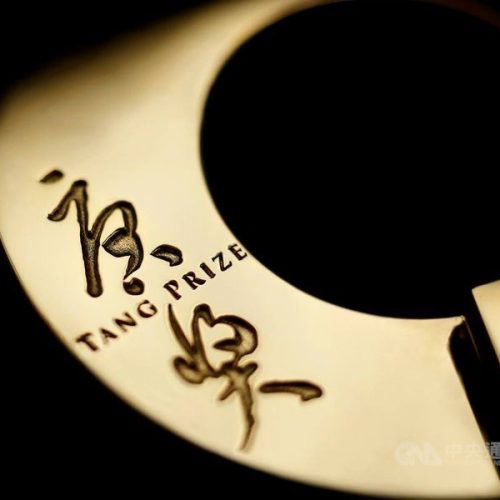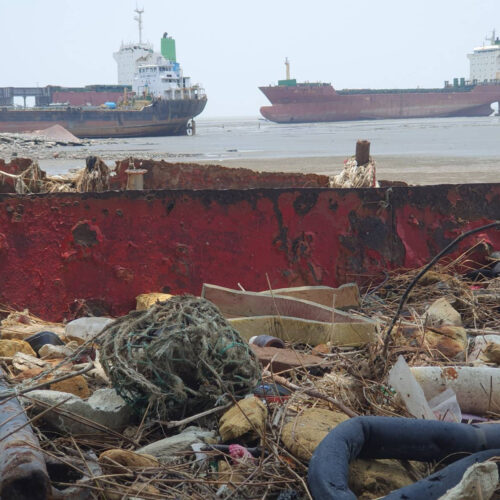Press Release – Toxic aircraft carrier São Paulo rejected by Turkey returning to Brazil
Environmental and labour groups declare victory
The toxic waste-laden aircraft carrier SÃO PAULO is on its way back to Rio de Janeiro, Brazil. IBAMA, the Brazilian Agency that had approved the export, was forced to recall the ship after Turkey barred its entrance on August 26, 2022, pending a proper and credible accounting of the volumes of hazardous wastes on board, including asbestos, PCBs, toxic paints, and radioactive wastes.
Prior to this dramatic reversal, a broad coalition of civil society organisations and concerned citizens had raised the alarm about the final voyage of the massive vessel, alerting authorities in Brazil, Turkey, and countries all over the Mediterranean region with numerous, detailed letters describing the illegality of the transboundary movement of the hazardous wastes on board the ship. The opposition against the export also manifested itself in large street protests in Aliağa, Izmir, and elsewhere in Turkey. Additionally, the UK territory of Gibraltar had stated that it would disallow the passage of the ship through its territorial waters prior to Turkey’s decision.

Under the Basel Convention, inventories of hazardous materials must be accurate, and the environmentally sound management of the toxics assured. Further, under the Izmir Protocol of the Barcelona Convention, Turkey is not allowed to import hazardous wastes into its territory.
So far, two suspect Inventories of Hazardous Materials (IHMs) have been submitted by Sök Denizcilik and Ticaret Limited, the buyer of the ship, despite the impossibility to access the majority of the ship’s structure to conduct a proper assessment. Both documents identify quantities of hazardous substances, such as asbestos and PCBs, far below the actual amounts found on SÃO PAULO’s sister ship CLEMENCEAU. The latter was built with the same design and was found to contain hundreds of tons of asbestos and PCBs at the time of its recycling in the UK. The buyer’s claim of a reported 9 tons of asbestos, no PCBs, and no radioactive residues on board the SÃO PAULO is thus seen as highly improbable.
Now, with the initial victory declared, the NGO Shipbreaking Platform, together with the Basel Action Network (BAN), BAN Asbestos France, the Henri Pézerat Association (Work, Health, Environment), International Ban Asbestos Secretariat (IBAS), İstanbul İSİG (İşçi Sağlığı ve İş Güvenliği) Meclisi, Greenpeace Mediterranean, and Brazilian ABREA (Associação Brasileira dos Expostos ao Amianto), is calling for a new independent IHM to be performed under the review of the French Government, and, importantly, for an entirely new auction to take place with only legal destinations participating.
When France sold the vessel to Brazil, the sale agreement specified that the ship could not be sent for dismantling without prior French approval. Given the current circumstances, France should now assist IBAMA in making sure an impartial and objective assessment of the quantities of hazardous materials on board is carried out, and the removal of asbestos, PCBs, radioactive substances, and toxic paints is performed in full compliance with national and international rules aimed at protecting both workers and the environment from poor waste management practices.
Several European yards, equipped with state-of-the-art technologies, have been showing interest in properly managing the recycling of the vessel. Additionally, a Brazilian organisation has been relentlessly campaigning for the conversion of the ship into a museum. Considering the illegality of the attempted transboundary movement and the buyer’s unreliable IHM submissions, Brazil is urged to start over, and initiate a new sale and be ready to consider alternative offers even if they are more expensive.
The SÃO PAULO is scheduled to arrive in Rio de Janeiro on October 4. According to the civil society groups, without a new accurate IHM, environmentally sound waste management plans, a new auction, and assurances of legal export, the ship must not be allowed to leave Brazil again.

For more information:
Jim Puckett, Basel Action Network, e-mail: jpuckett@ban.org, Phone: +1 206-354-0391Annie Thébaud-Mony, for Ban Asbestos-France Association, email: annie.mony@gmail.com
Asli Odman, Istanbul Health and Safety Labour Watch, email: asliodman@gmail.com
NGO Shipbreaking Platform, e-mail: info@shipbreakingplatform.org, Phone, +32 (0)260.94.419
Related news

Press Release – European Commission report recommends the introduction of a Ship Recycling License
Ships regardless of their flag should not be allowed to call at any EU port without a ship recycling license to incentivise sustainable ship recycling, a European… Read More

Press Release – Stop South Korea’s toxic ship dumping
South Korean shipping companies continue to fuel environmental and human rights violations by offloading their end-of-life vessels on the beaches of South Asia for scrapping. Since 2020,… Read More

Press Release – Toxic warship “Clemenceau II” starts voyage from Brazil to the Mediterranean Sea
Reports from Rio de Janeiro confirm that the sister ship of the infamous aircraft carrier Clemenceau has now been placed under tow on an about 6000-mile journey to Turkey, where it is to be scrapped.
... Read More
Platform News – Surge of fatal accidents in Chittagong
At least five shipbreaking workers have been killed and five more severely injured in a series of fatal accidents in Bangladesh in one month only. On… Read More

Platform News – NGO Shipbreaking Platform presents Annual Report 2015
The NGO Shipbreaking Platform presents its Annual Report 2015. Check the new Annual Report to find out more about: – our findings about global shipbreaking practices in… Read More

Platform News – Platform’s member BELA awarded the 2020 Tang Prize
Bangladesh Environmental Lawyers Association has been awarded the prestigious 2020 Tang Prize in Rule of Law.
... Read More
Press Release – Platform publishes list of ships dismantled worldwide in 2024
409 ships were dismantled globally in 2024, of which 255 ended up in South Asian yards. Bangladesh remains the shipping industry’s first choice for scrapping, despite grave consequences for workers, local communities and fragile coastal ecosystems.
... Read More
Platform News – Clean Shipping Coalition: Maersk undermines its reputation with plan to circumvent ship recycling law
The Clean Shipping Coalition criticises container ship giant Maersk for its statement that is considers to flag out end-of-life vessels from the Danish or other European registries… Read More
